♀️ The Trailblazing Women of Wall Street
Women have long shaped Wall Street—even when history tried to write them out.


This September, the 1922 “Jane’s Carousel” opened in Brooklyn Bridge Park’s newly renovated “Empire-Fulton Ferry Park” The carousel was constructed by the Philadelphia Toboggan Company and was originally an amusement ride in Youngstown, Ohio. In 1984, the battered carousel was purchased at auction for $385,000 by David and Jane Walentas. The Walentas had been shopping for an historic carousel as part of David’s plan for Brooklyn’s Empire Fulton Park. David Walentas had made his fortune in Brooklyn Real Estate, and has been credited by some with developing DUMBO from an abandoned industrial waterfront to a chic New York neighborhood. His real estate empire in New York City and Texas is worth about 1.5 billion dollars, he says.
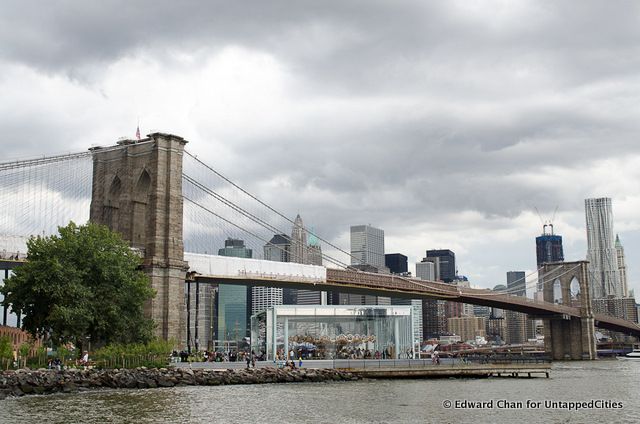
While David developed DUMBO, restoring the carousel became the labor of love for his wife Jane, an artist by training. Jane took over 20 years and untold amounts of their own money to bring each horse, chariot and scenery panel back to its original condition, in a process that can only be described as painstaking. Yet in that time, Empire Fulton Ferry State Park was assimilated into the Master Plan for the new Brooklyn Bridge Park, and the fate of the carousel became unclear, as there was no carousel in the new park’s master plan. Through an agreement with Brooklyn Bridge Park, David and Jane donated the carousel and 3.5 million dollars for the building of that portion of the park. Luckily for Jane and David, the area of the park that houses that carousel was planned to be a flat open lawn, so their donation only caused only minimal changes to the park’s plan. The Walentas also committed to the maintenance and operation of the carousel as part of the donation. Jane personally commissioned the Pritzker prize winning French architect Jean Nouvel to design the carousel’s new pavilion, which has a hefty price tag of 9 million dollars.
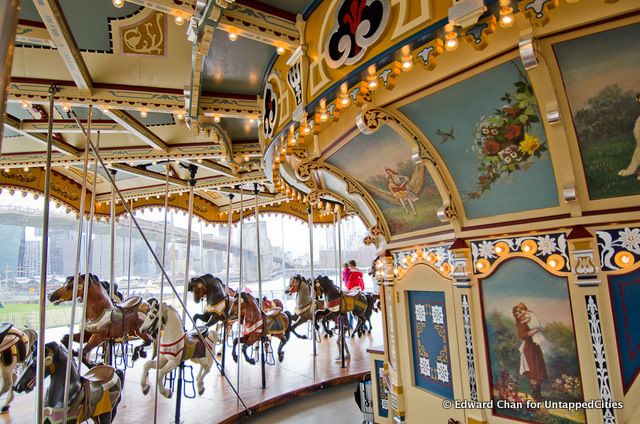
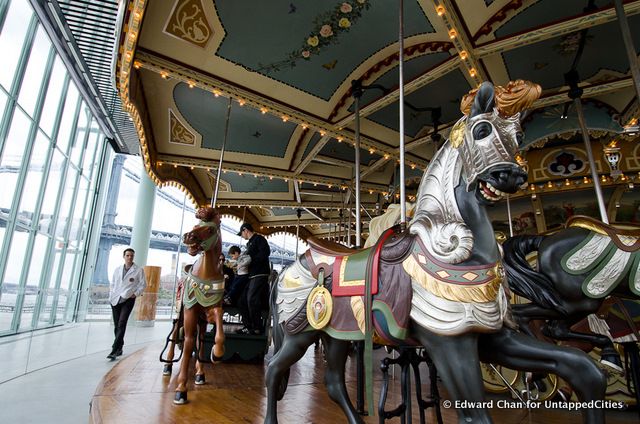
While Jane asked for a round building, Nouvel insisted that a square one would be more appropriate. In contrast to the highly ornate carousel, Nouvel kept the design of pavilion incredibly simple. The pavilion has been called a “transparent acrylic jewel box,” and its simplicity has prompted a New York Times architecture critic to ask “where’s the architecture?” Despite its apparent simplicity, the materials were more complex. Over one million dollars of acrylic panels were cast in Colorado, the granite was quarried in China, the steel fabricated in Canada, and the accordion doors were designed in Switzerland. The accordion doors on two sides of the pavilion will open to river breezes in warm weather. At night, lights will project the shadows of the rotating horses on the walls of the pavilion. The acrylic is not perfectly smooth like glass, so the view of the bridge and skyline from the interior become slightly warped, resulting in a whimsical effect. The color of the iron, a pale green, was Nouvel’s own idea. According to an architect on site, he was inspired by the patina that developed on old copper structures in Paris. If that’s true, it must be a coincidence that the copper trim of the clock tower on the Walentas building adjacent to the park is exactly the same color.
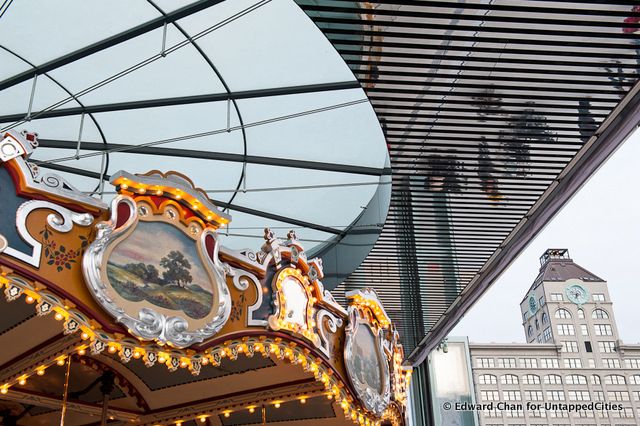
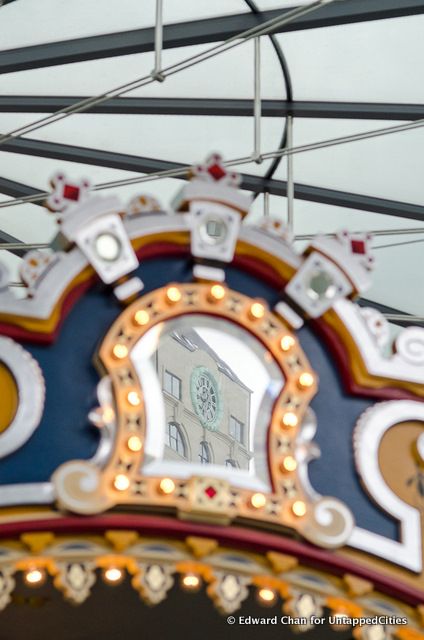
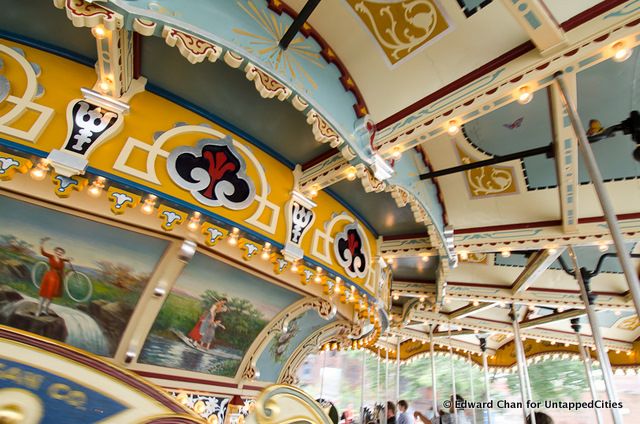
Yet the donation of the carousel has sparked outrage from some local community members, who have called it everything from “an eyesore” to “blight.” According to some, the only reason the Walentas’ want the carousel there is so they can have it in front of their building. The executive director of the DUMBO neighborhood alliance is quoted as saying “Jane’s Carousel is a complete disaster in its current location. The Brooklyn waterfront is too important a historic landscape to be used as a blank canvas for a developer to put an expensive toy in what they would like to be their front lawn.” Some opponents have expressed concern that the carousel and its pavilion would actually block the view of the Brooklyn Bridge- a laughable claim to anyone who’s seen it. Yet opponents maintain that the carousel diminishes the scenic vista of the bridge. Most likely the opposition is more of a reaction to the unpopular Walentas than the carousel. On the politically charged Brooklyn waterfront, virtually everything about the park has become controversial. Some have even suggested that the riders of Jane’s carousel would make the park too noisy. That’s right; some people in Brooklyn actually suggested that the laughter of children might detract from the serenity of a park that has two bridges passing overhead.
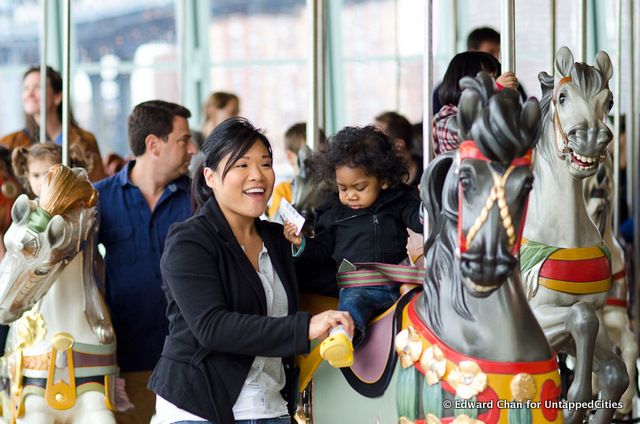
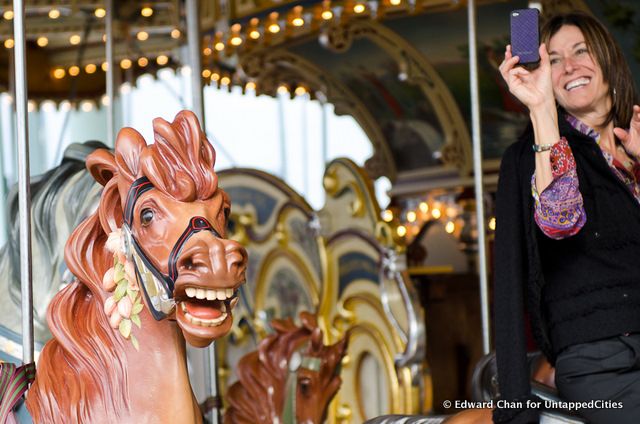

A few additional shots from the evening:
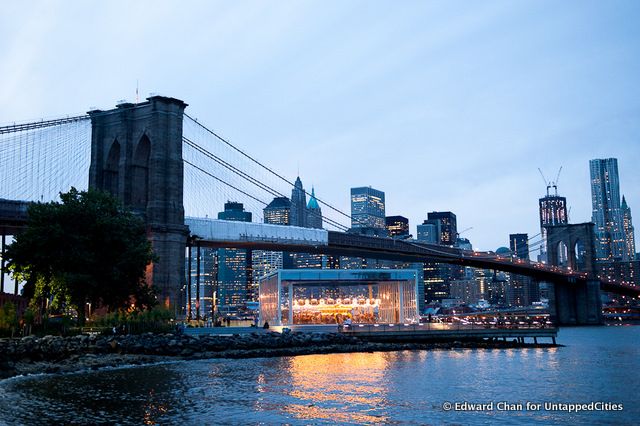
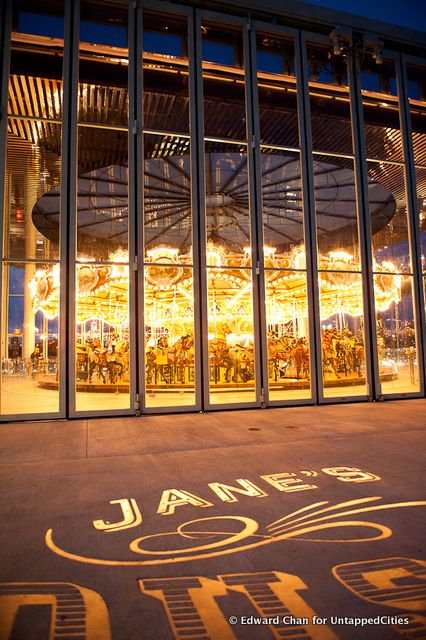
Alex Wallach is a graduate student in urban planning at Columbia University and and works at the Brooklyn Bridge Park Conservancy. See more of photographer Edward Chan’s work at https://www.edwardchanphotography.com/
Subscribe to our newsletter